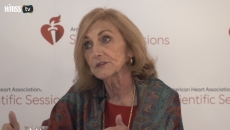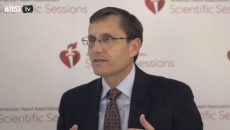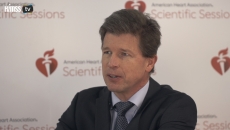Provider
The digital pill maker's employees were brought back after the company secured $5 million in emergency funding, but CNBC's report suggests that several are now looking elsewhere for work.
James Hury, deputy director and chief innovation officer at the Translational Research Institute for Space Health, says space health is helping bring cutting-edge technologies to Mars and back down to Earth.
Maintaining the health of humans leaving Earth pushes our current capabilities, says Dr. Dan Lowenstein, executive vice chancellor and provost at UCSF.
This week at the EIT Health Summit in Paris entrepreneurs, industry players, regulators and investors came together to discuss the opportunities for health innovation in Europe, and its relationship to the US market.
University of Pittsburgh Professor Lora Burke discusses her research into healthy behaviors and why encouraging health skills is becoming increasingly difficult.
In our first episode of "When It Works," intracranial hematoma patient Danielle Collins and George Washington University Hospital's Dr. Walter Jean share how virtual reality helped Collins comprehend her condition.
Patrick Wayte, SVP of the AHA's Center for Health Technology and Innovation, shares how his organization is bringing clinicians, behaviorists and technologists into a single conversation.
The CURE ID online data repository's crowdsourcing approach could help the agency to identify novel uses for approved drugs.
When bias is accounted for, researchers found a 50% dropout rate.
Clinical evidence will be vital in closing the wide gap between tech's vision and the clinical world's practical needs, says Duke School of Medicine Professor Dr. Eric Peterson.





